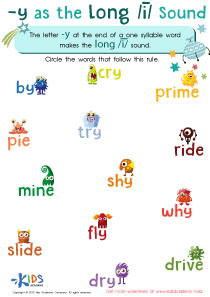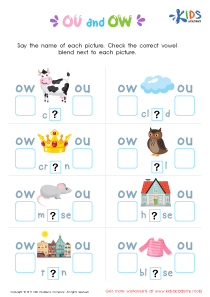Reading comprehension Short Vowels Worksheets for Ages 5-9
8 filtered results
-
From - To
Discover engaging "Reading Comprehension Short Vowels Worksheets" designed for children ages 5-9. These worksheets focus on mastering short vowel sounds, essential for young readers' development. Each activity combines reading passages with comprehension questions and interactive exercises, making learning enjoyable and effective. Perfect for home or classroom use, these printable resources will boost children's phonics skills, reading fluency, and confidence. Watch your child excel as they practice short vowel sounds in a fun, supportive environment. Start their reading journey with our expertly crafted worksheets at Kids Academy!
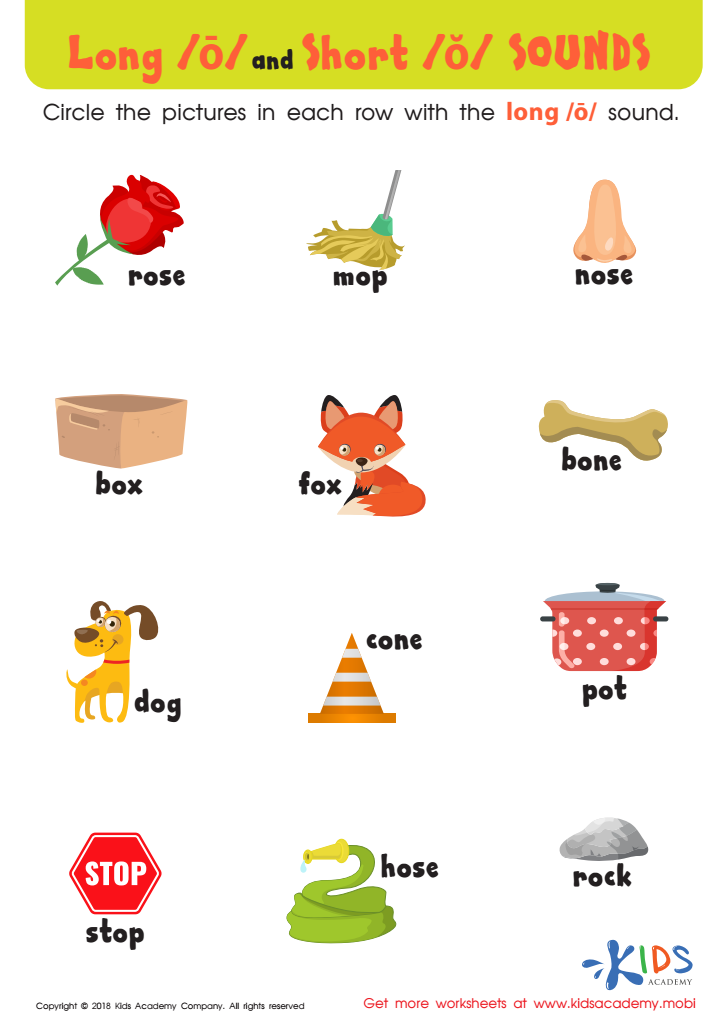

Reading: Long O and Short O Sounds Worksheet
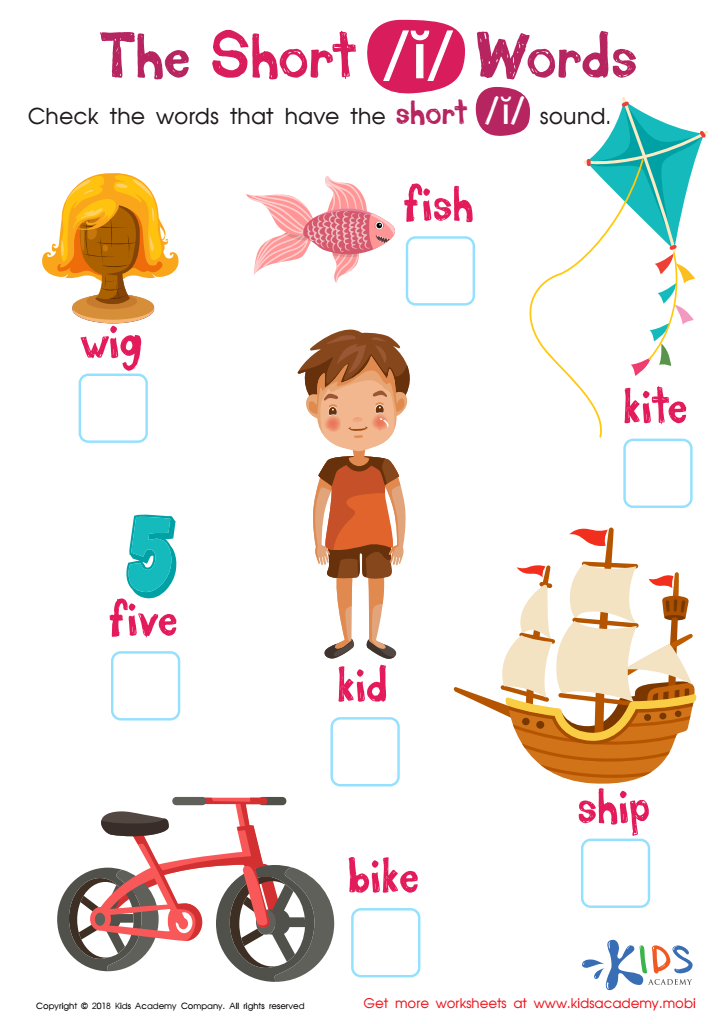

The Short I Words Reading Worksheet
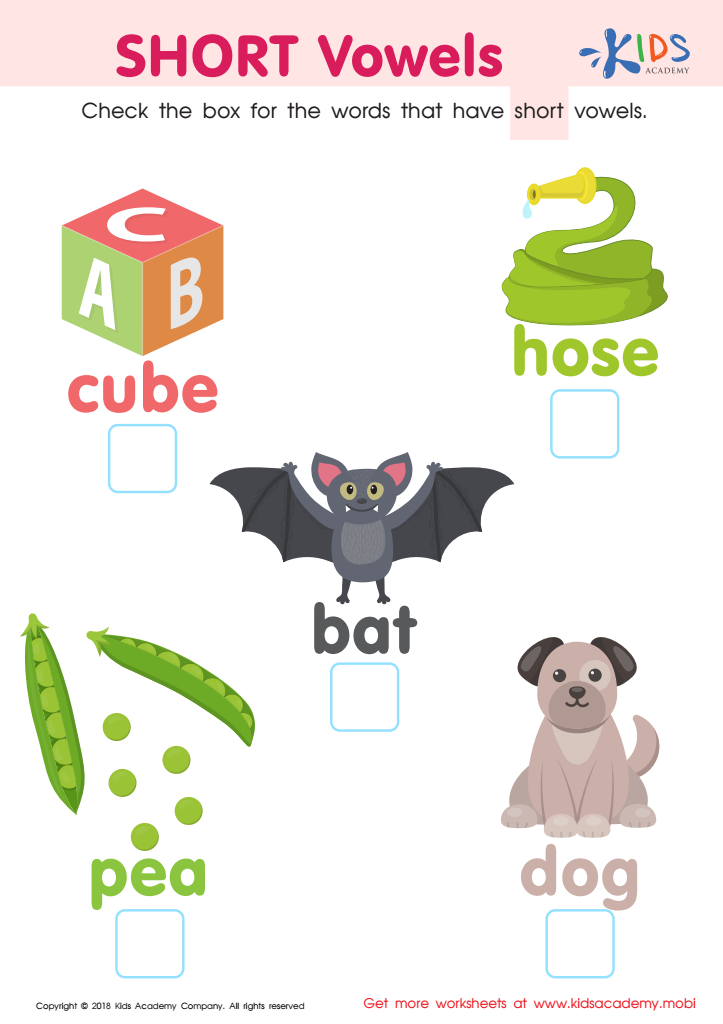

short vowels Worksheet


Short Vowels /e/, /i/, and /u/ Worksheet
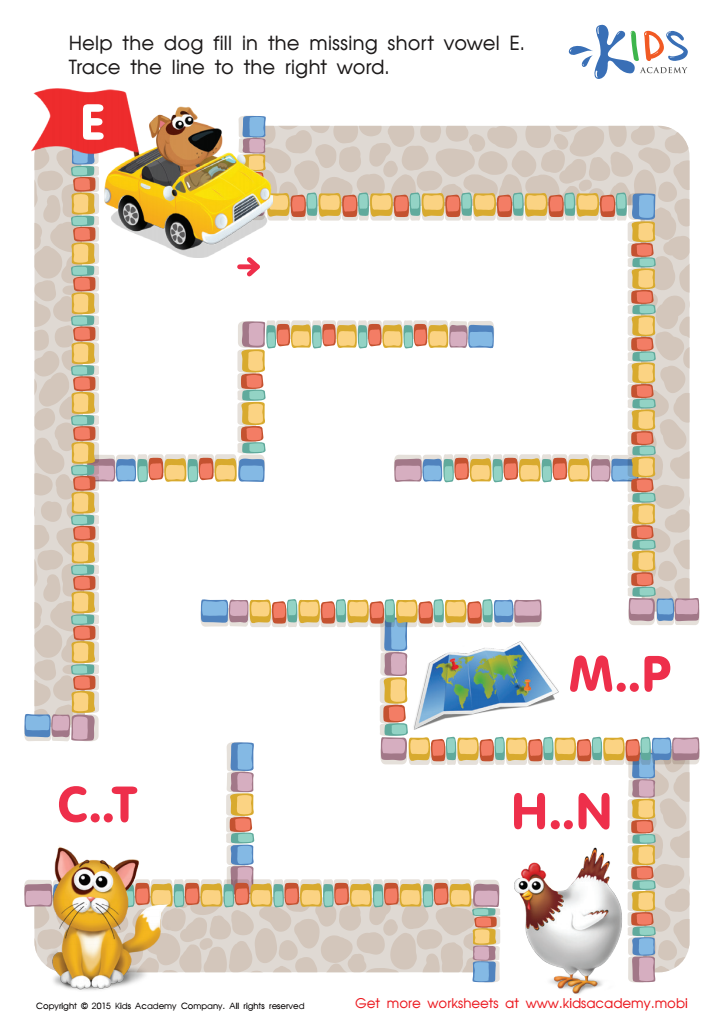

Short Vowel Sound E Worksheet


Long and Short Vowel Sentences: Assessment Worksheet
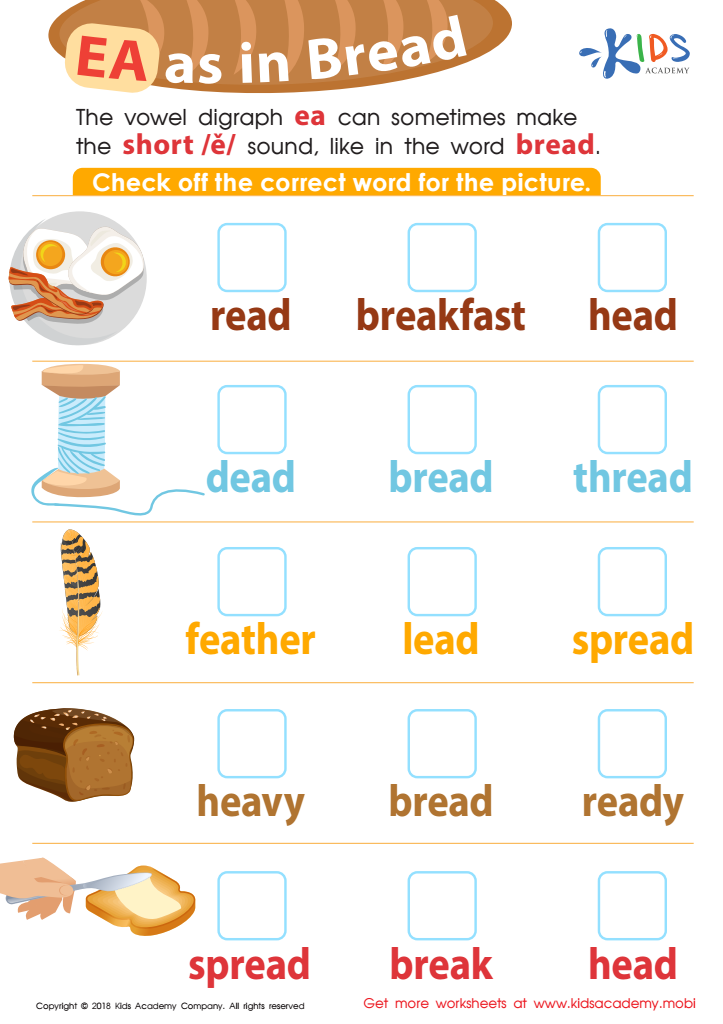

Reading: EA as in Bread Worksheet


Long and Short E Worksheet
Reading comprehension is pivotal for young learners aged 5-9, and understanding short vowels is a fundamental building block in this skill. Short vowels are the basic sounds of the English language and form the foundation of many simple words that early readers encounter. Mastering these sounds helps children decode words more easily, leading to smoother and more confident reading experiences.
When children grasp the concept of short vowels, they gain the ability to recognize patterns in words, which enhances their phonemic awareness. This is crucial for not only reading but also spelling. For instance, recognizing that "hat," "cat," and "bat" all end with the same sound enables children to predict and decode other similar words they come across.
Strong reading comprehension skills developed early in life have a long-lasting impact. They boost a child's academic performance across multiple subjects and cultivate a lifelong love of reading. Materials incorporating short vowels can transform challenging text into manageable, relatable content for young learners.
Furthermore, early successes in reading build self-esteem and encourage a positive attitude towards learning. Therefore, focusing on short vowels not only smooths the path to reading fluency but also nurtures an intrinsic confidence and excitement about gaining new knowledge. For these reasons, both parents and teachers should prioritize short vowel comprehension as a key component of early literacy education.
 Assign to My Students
Assign to My Students









